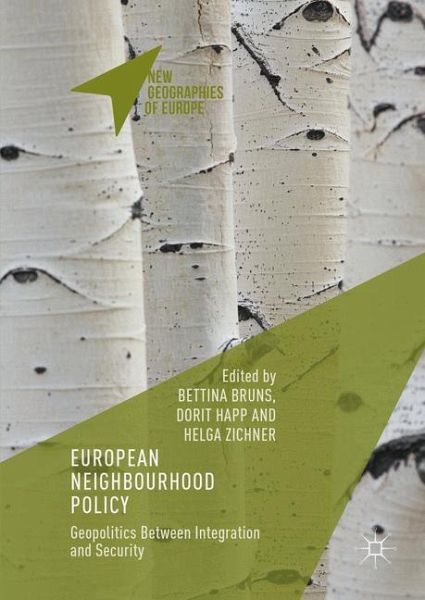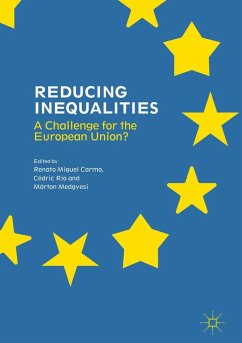
European Neighbourhood Policy
Geopolitics Between Integration and Security
Herausgegeben: Bruns, Bettina; Happ, Dorit; Zichner, Helga
Versandkostenfrei!
Versandfertig in 6-10 Tagen
76,99 €
inkl. MwSt.

PAYBACK Punkte
38 °P sammeln!
This book assesses the instruments and measures geared towards determining the EU's relations with it's neighbours. These are channelled on the one hand by the enlargement policy focusing on the Western Balkans and on the other hand by the neighbourhood policy which will enable the integration of Central and Eastern European neighbouring countries without offering membership. Both of these policies have strong local and regional effects in the EU's neighbouring countries. However, little attention has been paid to the perceptions of and impact of these policies in the neighbouring countries th...
This book assesses the instruments and measures geared towards determining the EU's relations with it's neighbours. These are channelled on the one hand by the enlargement policy focusing on the Western Balkans and on the other hand by the neighbourhood policy which will enable the integration of Central and Eastern European neighbouring countries without offering membership. Both of these policies have strong local and regional effects in the EU's neighbouring countries. However, little attention has been paid to the perceptions of and impact of these policies in the neighbouring countries themselves.
By presenting theoretical contributions and empirical case studies drawing on qualitative and ethnographic fieldwork, this book provides new insights that will be of great interest for students, researchers and practitioners in the fields of Geography, Sociology, Political Science and European Studies.
By presenting theoretical contributions and empirical case studies drawing on qualitative and ethnographic fieldwork, this book provides new insights that will be of great interest for students, researchers and practitioners in the fields of Geography, Sociology, Political Science and European Studies.












